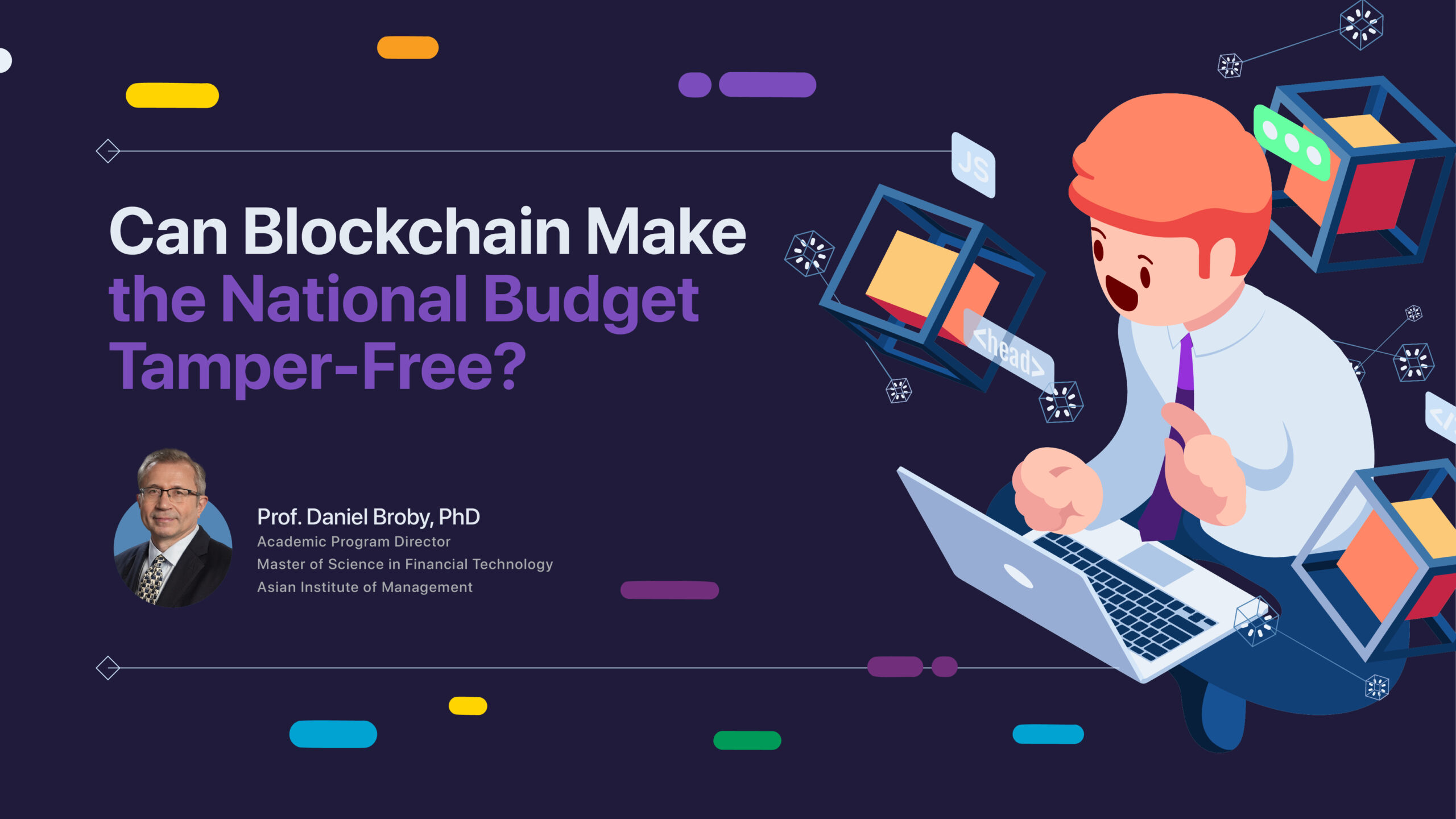Can Blockchain Make the National Budget Tamper-Proof?
By Professor Daniel Broby, PhD
Academic Program Director, Master of Science in Financial Technology
The recent flood defense scandal in the Philippines underscores the long-standing issue of corruption. Allegations of misallocated funds and opaque procurement processes have eroded public trust. Valuable resources have been wasted. These concerns are not just hot air. They are part of a recurring pattern in infrastructure and disaster-related spending. The need for structural reform in how government accounts for public funds is therefore pressing.
Senator Bam Aquino’s initiative to explore blockchain technology as part of the national budgeting process is a timely and constructive response. Senate Bill No. 1330 has been officially filed and is under consideration but has not yet been passed into law. As proposed, it seeks to embed blockchain into the management of the national budget. It would be a world first if enacted. By ensuring that every peso is recorded on an immutable and transparent ledger, the measure could make the Philippines a global reference point for digital governance.
Blockchain is best understood as a shared digital ledger, comparable to a spreadsheet that is simultaneously duplicated across many computers. Every transaction is recorded in a block, linked to the previous one, and secured through cryptography. Because the ledger is distributed and securely sealed, no participant can secretly alter past entries. This combination of openness and tamper resistance makes blockchain an ideal technology to track government spending.
Public confidence depends on reliable and permanent records. Blockchain has these properties. It therefore directly addresses the weaknesses exposed by the scandal. With blockchain, every record is carved in stone.
Immutability ensures that once a budget transaction is recorded, it cannot be altered without detection. Transparency provides real-time visibility of spending to authorized stakeholders and, where appropriate, the public. If disbursements and contractor payments for a flood defense project were placed on such a ledger, each transfer of value would be time-stamped and permanently verifiable.
This approach is not merely theoretical. Pilot projects in other jurisdictions already demonstrate this. Examples include blockchain-based land registries and municipal bond issuance. Applied to the national budget, blockchain could provide line-item traceability from congressional appropriation to agency spending and down to local project execution.
The bill mandates that all government financial platforms, such as budgeting systems, disbursement tools, accounting applications, and reporting software, must comply with blockchain interoperability standards. This requirement would eliminate hidden projects unknown to local governments. It would also enable easy price comparisons for materials such as cement or classroom construction supplies across different contracts.
However, the path to implementation will require careful preparation. Infrastructure constraints must be addressed to ensure reliable digital access across the archipelago. Chief among these is the availability of IT skills. Legal and regulatory frameworks must also be adapted to recognize blockchain records as authoritative. Digital literacy, particularly among local government units and auditing bodies, is essential.
If these challenges are met, the Philippines could position itself as an ASEAN leader in digital governance. By embedding transparency at the protocol level, blockchain offers a new paradigm for public finance. The result would be stronger public confidence, more efficient auditing, and a deterrent to misuse of funds.
The strength of interest in this idea is evident. On two recent occasions I gave talks to large audiences at the Asian Institute of Management. When mentioning blockchain’s potential to ensure transparency in government budgeting, the concept drew loud applause. This spontaneous response signals that the concept resonates with professionals, students, and policymakers alike. It reflects widespread support for the Senate Bill.
Education has an important role in realizing this vision. At the Asian Institute of Management we teach blockchain technology in the Master of Science in Financial Technology program and within the Executive Master in Cybersecurity Management modules. Students learn how to design and deploy blockchain systems and to understand their policy and ethical implications. These programs equip graduates to apply emerging technologies to both industry and governance.
The flood defense scandal is a reminder of the cost of opaque financial systems. By adopting blockchain, the Philippines has an opportunity to ensure that national budget expenditures can be traced, verified, and accounted for. Such an approach would lay the groundwork for a more transparent and trustworthy fiscal future.
About the Author

Professor Daniel Broby is Professor of Financial Technology at the Asian Institute of Management and a former senior fund management executive. His research focuses on how financial technology reshapes markets and regulation, with work spanning blockchain, central bank digital currencies, indices, and fund management. He publishes widely in leading finance and policy journals.
Before academia, Professor Broby was Chief Executive Officer, Chief Investment Officer, and Chief Portfolio Manager in the investment industry, serving on boards of regulated companies and earning recognition such as the CFA Institute Society Leader Award. He holds a PhD in Accounting and Finance and is a Chartered Fellow of the CISI, an Honorary Fellow of CFA UK, and a Senior Fellow of the HEA.


